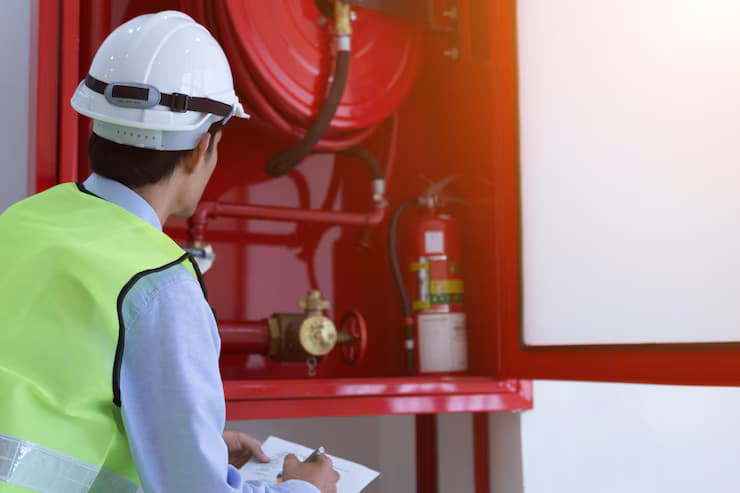In an increasingly complex world where safety regulations are becoming more stringent, the significance of fire protection survey cannot be overstated. As businesses, institutions, and organizations strive to create safe environments for their employees, customers, and the general public, regular fire protection surveys emerge as a critical component of comprehensive fire safety management. These surveys play a vital role in ensuring that all fire protection systems are functioning as intended and that compliance with safety regulations is maintained. This article delves into the importance of regular fire protection surveys and their implications for safety compliance.
Understanding Fire Protection Surveys
A fire protection survey is a systematic assessment of a building's fire safety measures, encompassing everything from fire alarms and extinguishers to passive fire protection systems like fire-rated walls and doors. The primary objective of these surveys is to evaluate the effectiveness of existing fire protection measures, identify potential deficiencies, and recommend improvements to enhance overall safety.
Types of Fire Protection Surveys
Fire protection surveys can take various forms, including:
- Routine Inspections: Conducted regularly to ensure that all fire protection systems are operational and compliant with the latest regulations.
- Comprehensive Assessments: In-depth evaluations that consider all aspects of fire safety, including structural elements, operational practices, and emergency preparedness.
- Post-Incident Evaluations: Surveys conducted after a fire incident to assess the effectiveness of existing fire protection measures and to identify areas for improvement.
Each of these surveys serves a unique purpose and is essential for maintaining a robust fire safety strategy.
The Role of Fire Protection Surveys in Safety Compliance
1. Ensuring Compliance with Regulations
One of the most significant benefits of regular fire protection surveys is their role in ensuring compliance with fire safety regulations and standards. Fire safety laws vary by region and may include local fire codes, national standards, and occupational safety regulations. By conducting regular surveys, organizations can verify that their fire protection systems meet these requirements, reducing the risk of potential legal liabilities and penalties.
Failure to comply with fire safety regulations can have severe consequences, including fines, lawsuits, and damage to an organization’s reputation. Regular fire protection surveys serve as a proactive measure to avoid these pitfalls by ensuring that all systems are up to code.
2. Identifying Deficiencies and Risks
Fire protection surveys are instrumental in identifying deficiencies within a building’s fire safety systems. These assessments allow inspectors to pinpoint areas where fire protection measures may be lacking or insufficient. For example, an inspector may discover that fire extinguishers are not properly maintained, or that fire doors are not functioning correctly.
By identifying these deficiencies early on, organizations can take corrective actions before a fire incident occurs. This proactive approach not only enhances safety but also minimizes the risk of property damage and loss of life. Moreover, addressing potential risks before they escalate can lead to significant cost savings in the long run.
3. Enhancing Emergency Preparedness
Regular fire protection surveys play a crucial role in enhancing emergency preparedness. These surveys assess not only the physical fire protection measures in place but also the effectiveness of emergency response plans. A comprehensive survey will evaluate how well an organization can respond to a fire incident, including evacuation procedures, training for employees, and communication strategies.
By identifying weaknesses in emergency preparedness, organizations can implement necessary changes to ensure that staff members are adequately trained and equipped to respond effectively in the event of a fire. This preparedness can make a significant difference in minimizing injuries and fatalities during a fire emergency.
The Financial Implications of Fire Protection Surveys
1. Reducing Insurance Premiums
Insurance companies often consider an organization’s commitment to fire safety when determining premiums. Organizations that consistently conduct fire protection surveys and maintain high safety standards may benefit from lower insurance premiums. Insurers recognize that proactive measures reduce the likelihood of fire incidents, thus minimizing their risk.
By investing in regular fire protection surveys, organizations can not only enhance safety but also potentially save significant amounts on their insurance costs over time. This financial incentive further underscores the importance of prioritizing fire safety.
2. Minimizing Costs Associated with Fire Incidents
The financial ramifications of a fire incident can be devastating for organizations. Beyond the immediate costs of property damage and potential injuries, the long-term consequences include lost revenue, increased insurance premiums, and damage to reputation. Regular fire protection surveys help mitigate these risks by ensuring that fire safety measures are effective and compliant.
By preventing fires before they occur, organizations can save themselves from the substantial costs associated with fire-related incidents, making fire protection surveys a wise investment in risk management.
The Value of Continuous Improvement
Regular fire protection surveys not only identify existing deficiencies but also foster a culture of continuous improvement within organizations. By routinely assessing fire safety measures, organizations can stay informed about the latest fire protection technologies, regulatory changes, and best practices. This commitment to continuous improvement strengthens the overall fire safety culture within the organization.
Furthermore, as businesses evolve and expand, their fire protection needs may change. Regular surveys allow organizations to adapt their fire safety measures accordingly, ensuring that they remain effective and relevant in an ever-changing environment.
Conclusion
In conclusion, the importance of regular fire protection surveys for safety compliance cannot be overstated. These surveys serve as a cornerstone of effective fire safety management, ensuring compliance with regulations, identifying deficiencies, enhancing emergency preparedness, and providing substantial financial benefits. By prioritizing regular fire protection surveys, organizations can create safer environments for their employees and customers while minimizing the risk of fire incidents.
For businesses committed to maintaining the highest standards of fire safety, TBL Fire Protection is ready to assist. Their team of experts specializes in comprehensive fire protection surveys tailored to your specific needs. Don’t leave safety to chance—contact TBL Fire Protection today to secure your peace of mind and ensure your organization is prepared for anything.





Comments